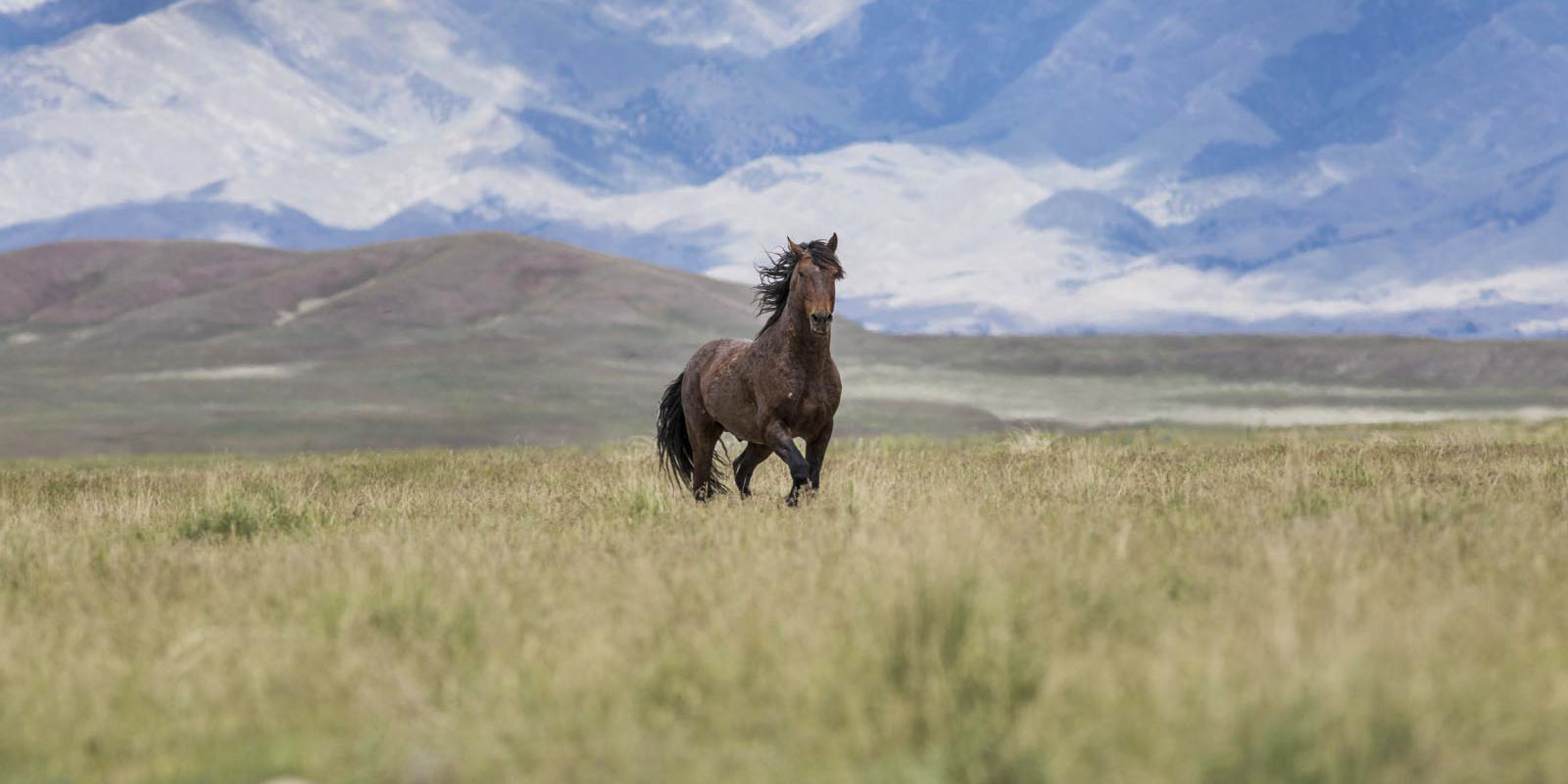October 10, 2018
The Forest Service today started a major roundup of as many as 1,000 wild horses on federal lands in Northern California despite the concerns of California Sen. Dianne Feinstein (D) that some of the captured animals could eventually be sold to slaughterhouses.
Feinstein yesterday sent a two-page letter to acting Forest Service Chief Vicki Christiansen asking her to "halt any sales of wild horses" rounded up during the first horse "gather" in 13 years at Modoc National Forest.
The roundup, which is expected to take about a month, began this morning, according to a spokeswoman.
The Forest Service has made it clear the roundup is badly needed to "sustain the natural ecological balance" in the national forest, as there are nearly 4,000 wild horses in the forest's Devil's Garden Plateau Wild Horse Territory.
The service says the more-than-250,000-acre wild horse territory can sustain no more than 402 wild horses.
But advocates worry some of the older animals that cannot be adopted will eventually be sold to slaughterhouses in Mexico and Canada.
Congress for years has placed language into appropriations bills that forbids the Bureau of Land Management — which manages the vast majority of the 82,000 wild horses and burros on federal rangelands — from using euthanasia and limits its ability to sell animals, as authorized under the Wild Free-Roaming Horse and Burro Act of 1971.
But that only covers the Interior Department; the Forest Service is an agency under the Department of Agriculture.
The service has indicated it would sell without limitation as many as 300 of the horses that are 10 years or older and cannot be adopted for as little as $1 each.
Enter Feinstein, who asked Christiansen in the letter whether the Forest Service could "certify that no horses that are sold will be transferred to third-party buyers who may end up slaughtering the animals for commercial use."
"I understand that the Forest Service and the Bureau of Land Management have a statutory obligation under the Wild Free-Roaming Horses and Burros Act of 1971 to protect wild horses and burros on federal land," Feinstein wrote. "However, it is also possible that many of these animals will end up being sold to slaughterhouses."
She requested that Christiansen "promptly respond" to a list of six queries, including the question on selling horses to third-party buyers, and to "halt any sales of wild horses until I receive a response."
The issue at Modoc National Forest comes as the service and BLM grapple with how to manage more than 82,000 wild horses and burros across roughly 27 million acres of federal herd management areas.
BLM says that's 55,000 more animals than the appropriate management level, or what regulators believe is the maximum number of horses and burros the rangeland can handle without causing damage to vegetation, soils and other resources.
With no natural predators, wild horse and burro herds could exceed 100,000 animals by next year, BLM has warned, a situation that would almost certainly lead to thousands of horses dying of starvation and lack of water.
The Forest Service manages about 8,000 wild horses and burros, mostly in Arizona, California, Montana, Nevada, New Mexico, Oregon and Utah. Most Forest Service herd areas are jointly managed with BLM.
So dire is the situation that BLM said today it will begin in the coming weeks an adoption incentive program offering $1,000 to someone who adopts one of the 50,000 wild horses that the agency has removed from federal rangelands and is paying to care for in off-range holding pens and corrals (Greenwire, Oct. 10).
BLM last summer quietly updated its policy for selling wild horses and burros to make it easier to purchase bulk numbers of animals (E&E News PM, July 24).
"There's a right way and a wrong way to manage wild horses, and the Forest Service is pursuing the wrong way with the mass roundup by helicopter of 1,000 federally protected mustangs" at Modoc, said Suzanne Roy, executive director of the American Wild Horse Campaign.
Roy added: "The situation is made even worse by the Forest Service's plan to sell older wild horses by the truckload for $1 apiece without limitation on slaughter. This plan puts hundreds of California wild horses in danger of being sold for slaughter in a state that has banned the cruel practice for 20 years.
"We are calling on the Forest Service to protect wild horses from slaughter and are willing to work with the federal government to implement humane management, including use of birth control, for California's largest and most significant wild horse population."


